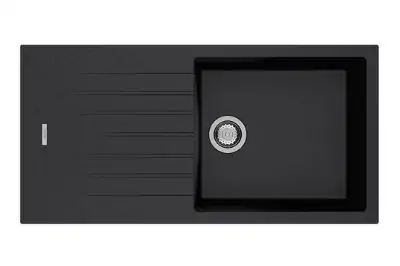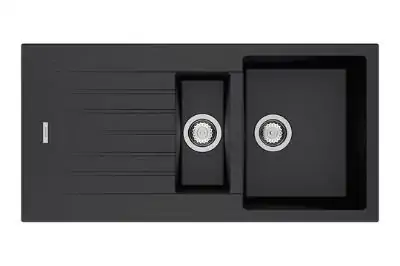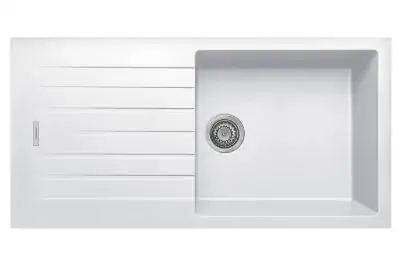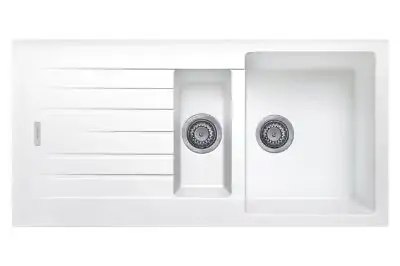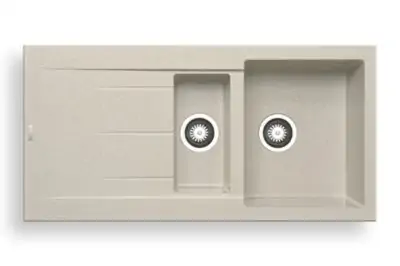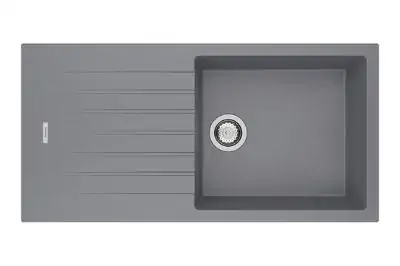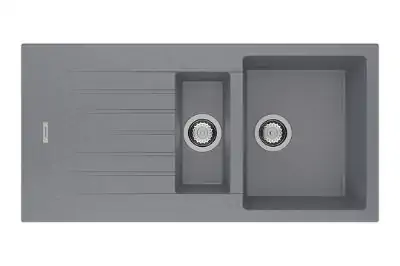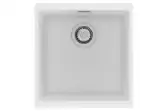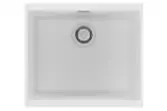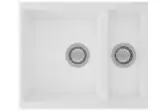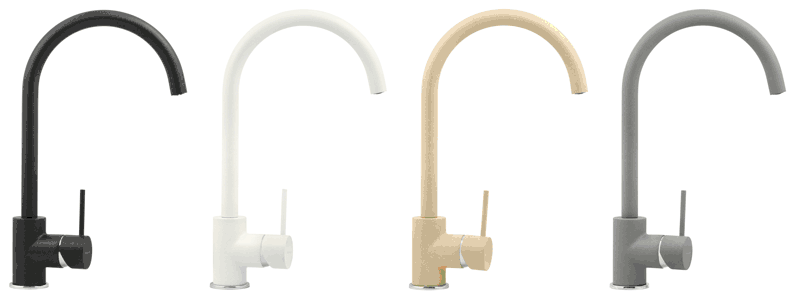What are composite sinks? The complete guide
Many people who come to our Dublin showroom get instantly wowed by the sleek modern style of our composite sinks. In many cases it was not a style they had envisaged when visiting but once viewed, it was something they had to have to a point that the style of their new kitchen had to be slightly altered!
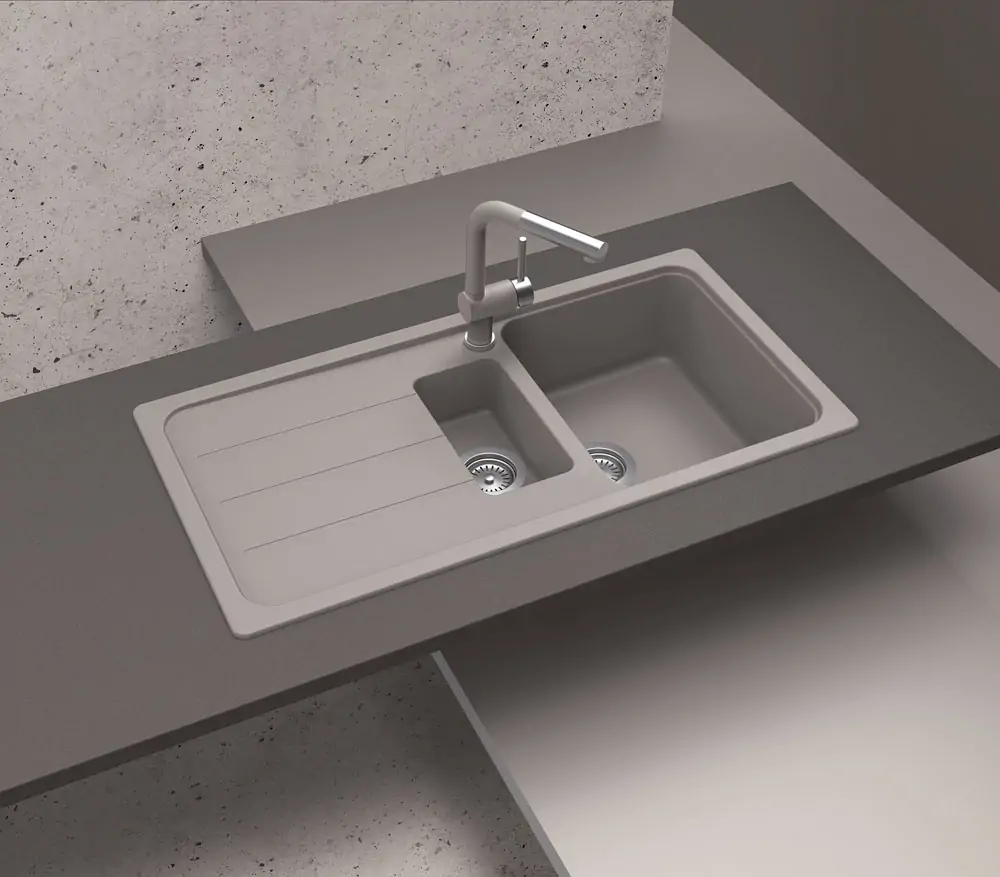
However, beyond the great first impression, many customers are naturally curious with the concept of composite granite sinks compared to the more familiar stainless steel counterparts. Here we will hope to address the most common FAQs and hopefully emphasize that the technology and durable quality of composite sinks, is as impressive as their stunning aesthetic appeal. Let's start with the obvious. OK Google...
What are composite sinks?
Composite sinks are a composition of various highly durable materials such as granite resin, quartz and heavy plastic dusts. The materials vary by brand but most composite sinks are made of approximately 80% quartz or other similar materials that are basically designed to make the sink as stain, heat, impact and scratch proof as possible. As such, they are distinctly more durable than stainless steel or ceramic counterparts. The smaller 20% materials are typically made of acrylic like particles to act as bonding agents to the more solid materials.
Due to the huge amounts of investment and time put into the R & D and technology of these sinks, many brands patent their own specific composition. Our world class suppliers: Clearwater with their Quarsil and Pyramis with their Pyragranite patented technology going into the production of all their composite sinks.
Now that the obvious question is answered, here are the other common FAQs we get all the time.
What is the surface finish of composite sinks?
The materials used in production naturally lead to a stone, rock like appearance. As such many composite sinks are branded as granite, marble or stone type sinks. The finish is typically a smooth matte sanded down look with the typical colours being a black, grey, cream, beige, ivory or white hue. The surface is beautifully smooth yet also has a crisp granite feel at the same time.

The dark or cream finishes typically appeal to those who wish to have a sink that blends or contrasts with the finish of most popular worktops. Black and grey finishes are also desired to match up with modern appliances in a kitchen: American fridges, open plan hoods etc. In recent years, light finishes such as white have become very popular not only as a modern look, but for shaker or farmhouse kitchens too, where ceramics have traditionally dominated. The white finish allows for all the quality and durability of a composite sink to be in fitting with traditional themed kitchens.
Are composite sinks durable?
They are without a doubt the most durable kitchen sink on the domestic market. As such, they are typically more expensive than stainless steel sinks due to the quality that goes into the production and finish. Granite and quartz resins make the sink have a higher than average load capacity while the rock like surface is virtually impossible to dent or scratch. Rather than talking about the toughness, better to just demonstrate:
Are composite sinks easy to clean?
Composite sinks are designed to withstand distinctive stains and high levels of heat:
Beyond that, simple common sense and regular cleaning will keep the sink in pristine condition:
Do's
- Wash at the end of everyday in use with a soapy cloth or better yet, a modern hand sponge with washing up liquid within the handle using hot water.
- OPTIONAL: to avoid a build up of lime over the years at base of bowl, a specific composite sink cleaner might be recommended to be used once a month.
Dont's
- Do not apply any industrial chemical agents to the sink. The only cleaning agents that should be applied, are those fit for everyday cleaning use in a kitchen.
- Do not pour alcohol, gasoline, chlorine or other diluents because they damage beyond repair.
- Do not leave hot pots and pans sitting on the sink. Brief contact such as seen on video will suffice and the sink is designed to withstand contact much longer than stainless steel or ceramic but that does not mean you can sit a pot down and start mashing your potatoes!
- Do not use any industrial grade abrasives or use the sink as a work area for doing such.
All Tivoli composite sinks come with a 25 year warranty.
Are there taps to match composite sinks?
One constraint to composite sinks, is a difficulty finding a tap to match the finish if that is your preference. Clearwater however, have a matching tap for each finish available:
So to summarize the pro and cons of choosing composite sinks compared over stainless steel.
| Pros |
|---|
| Highly aesthetic |
| Built to last |
| Inset installation makes suitable for both granite and laminate worktops |
| Easy to install |
| Cons |
|---|
| Expensive compared to stainless steel |
| Hard to source taps to match |
| If you apply ill advised chemicals, they will stand out much more |
| Hard to source in smaller sizes |
Hopefully at this point, it is clear to you why composite granite sinks are becoming the standard of top class quality in kitchen sink design.


